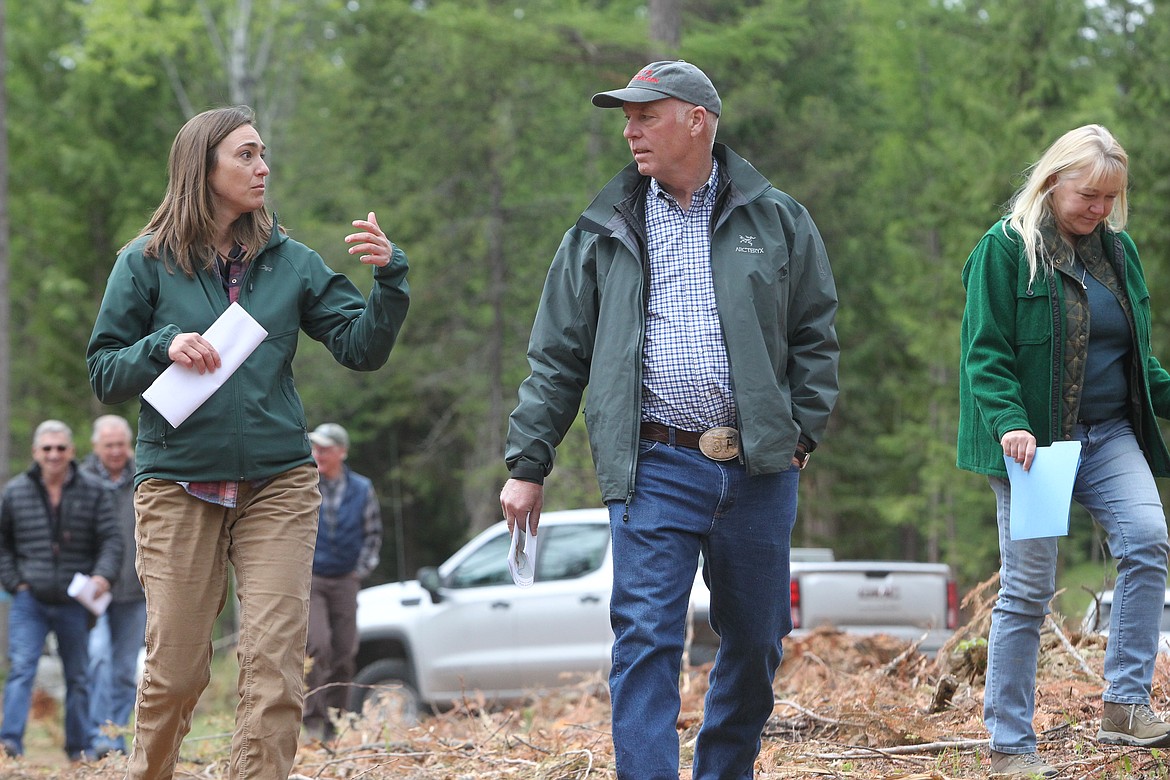ARPA monies sought to bolster fiberboard plant project
Local officials have made headway towards securing money for a new wood processing facility in Libby, but stress that much work remains to be done before they can begin stocking the factory.
Mark Peck, shared stewardship coordinator with the Lincoln County Port Authority, said he had filed a draft proposal requesting state officials to set aside coronavirus relief monies for the medium density fiberboard plant project. The funds, which would come from the federal American Recovery Plan Act (ARPA), may be used by the state to back projects that assist with economic transformation, stabilization and workforce development.
Peck told port authority board members on Aug. 11 that state officials had reviewed the draft proposal and accepted it as an application for funds. During a tour of the port authority in May, Gov. Greg Gianforte said his office would explore different ways of supporting the project, including using ARPA funds.
While the news marked a step forward, County Commissioner Jerry Bennett (D-2) said officials still had many legal necessities before them.
To furnish the medium density fiberboard factory, public officials and their private partners needed to finalize plans to bring equipment to Libby from a defunct factory in Dubuque, Iowa. During the Aug. 11 meeting, Peck said that he had bought board members some time to clear up the details of transporting the equipment.
Local officials were working to acquire a large structure on port authority property, commonly referred to as the Stinger building, that they expected to use to house the factory. Long-term plans for who would own the building remain unclear, said Bennett.
To help officials navigate the process, Tina Oliphant, executive director of the Kootenai River Development Council, said she had outlined the series of development agreements the county and port authority would have to make to get the project off the ground.
While navigating these requirements, Bennett said the lead players in the project could change. Bennett could not say if the reshuffling would affect Corey Bitton, the Washington businessman who public officials selected for the project.
“We just have to remain flexible,” he said.
In recent months, Bitton’s past legal troubles created an unexpected headache for local officials.
In 2007, Bitton pleaded guilty to mail fraud, wire fraud and aiding and abetting in a Washington state federal court. A judge sentenced him to three years of probation for both the mail fraud charge and wire fraud and aiding and abetting counts, which ran concurrently.
According to court documents, Bitton “materially and falsely understated his revenue” for four months in 2000 while managing a restaurant and catering business in Pasco, Wash. Bitton also prepared and submitted false financial statements when planning to sell the business in mid-2000, according to court documents.
Bennett and Peck previously said they were unaware of the convictions when they began working with Bitton. Both said state officials were not concerned with the cases.
When Peck unveiled plans for the fiberboard plant in May, he anticipated it would employ roughly 40 workers per shift. Factoring in supporting work, the plant could create between 150 and 200 jobs. Officials estimate that the plant would be valued at between $60 and $80 million when up and running.

